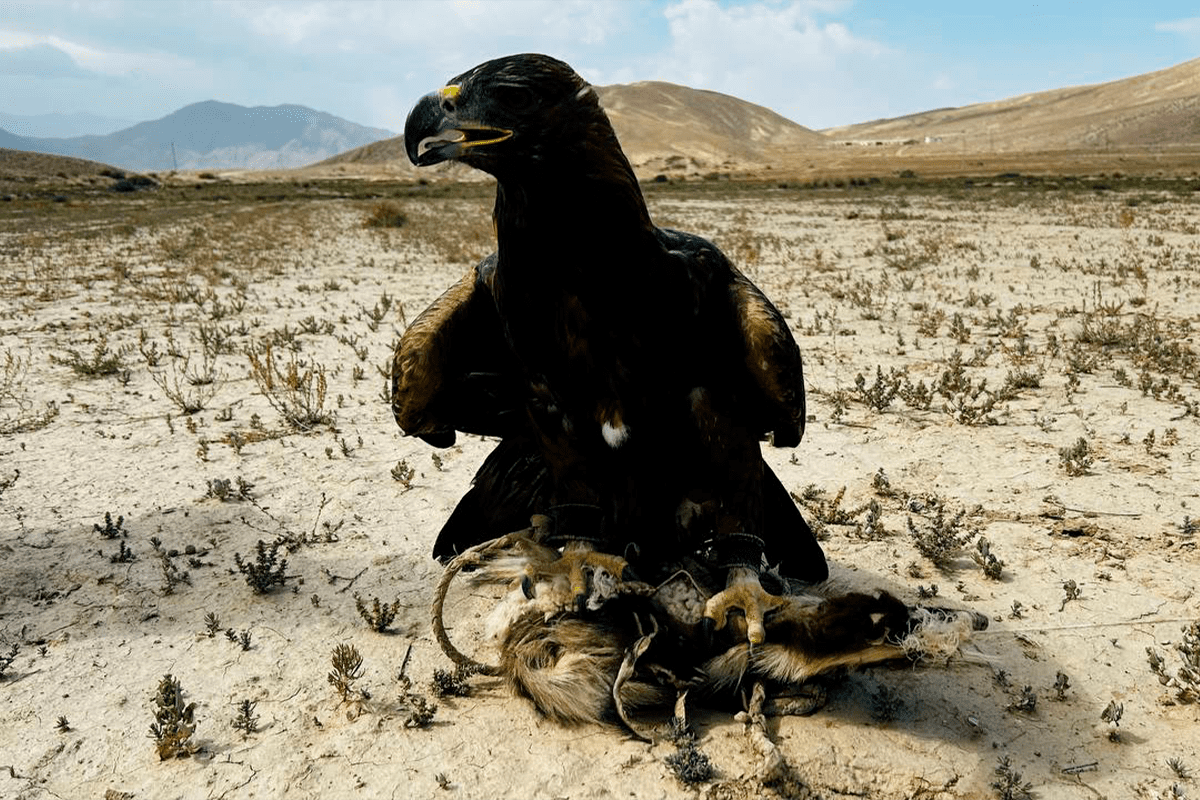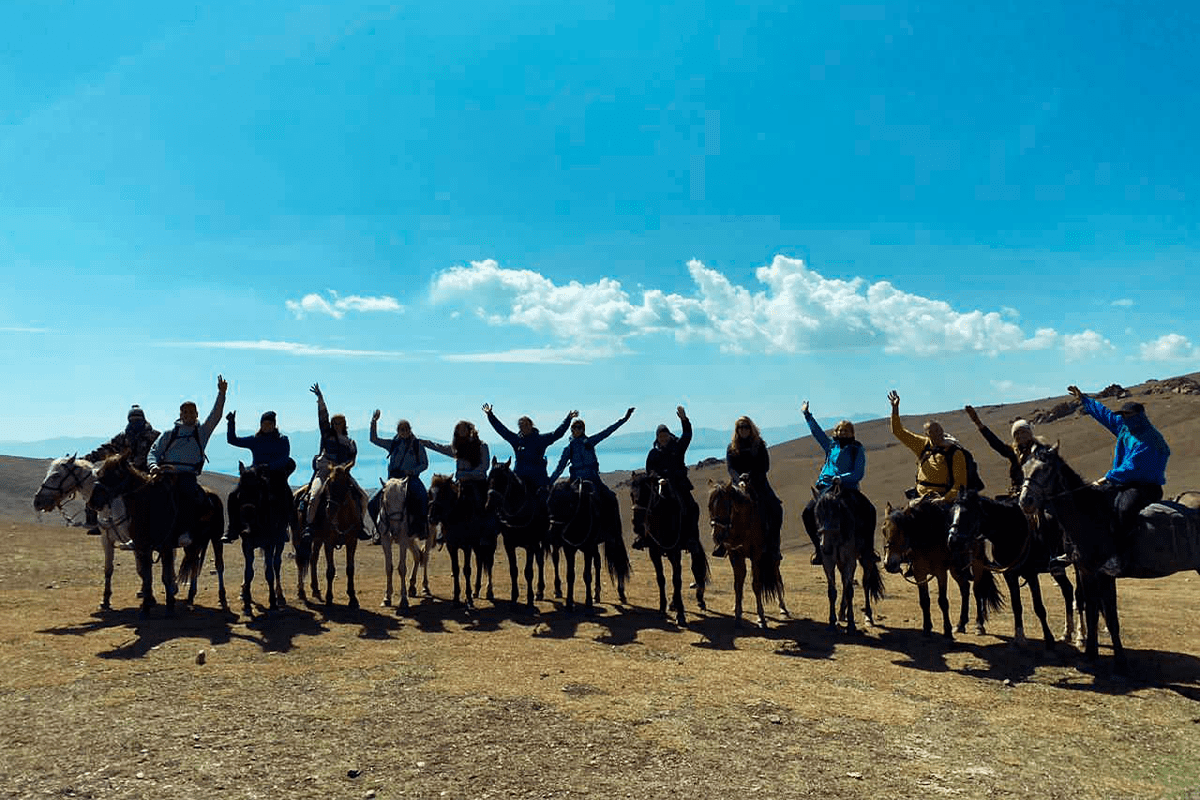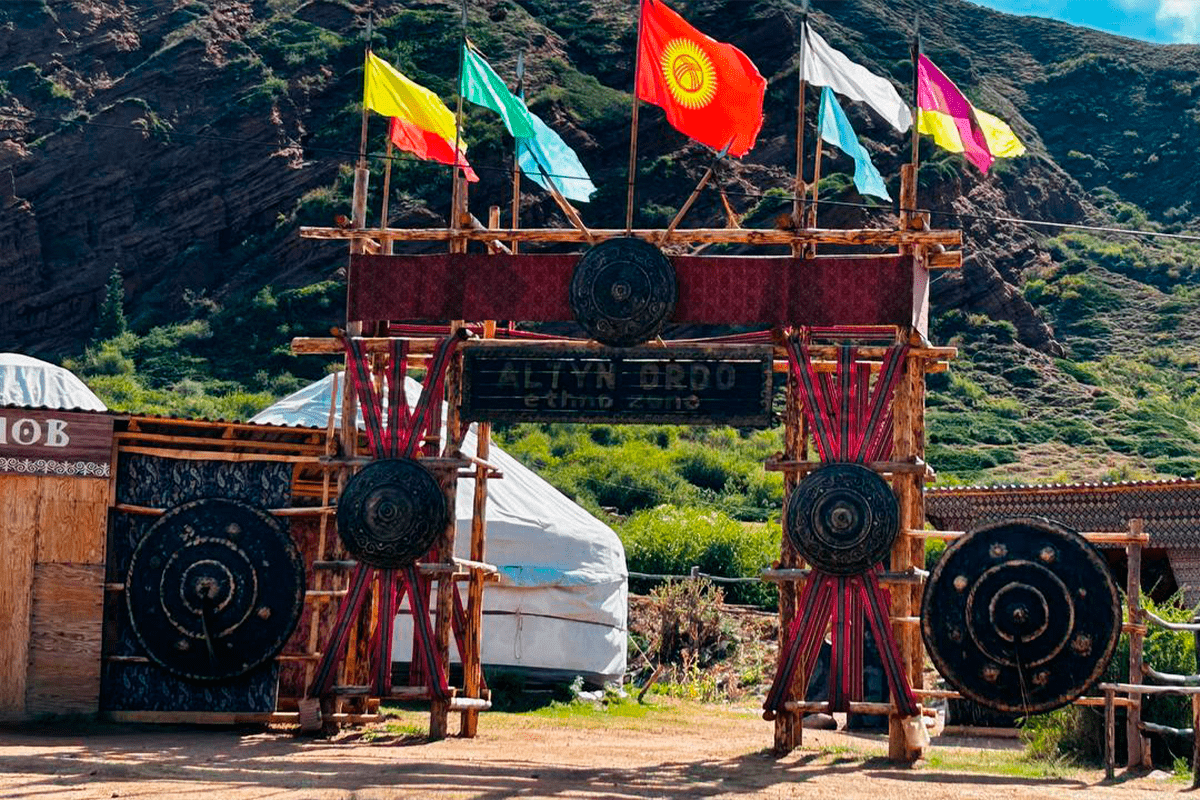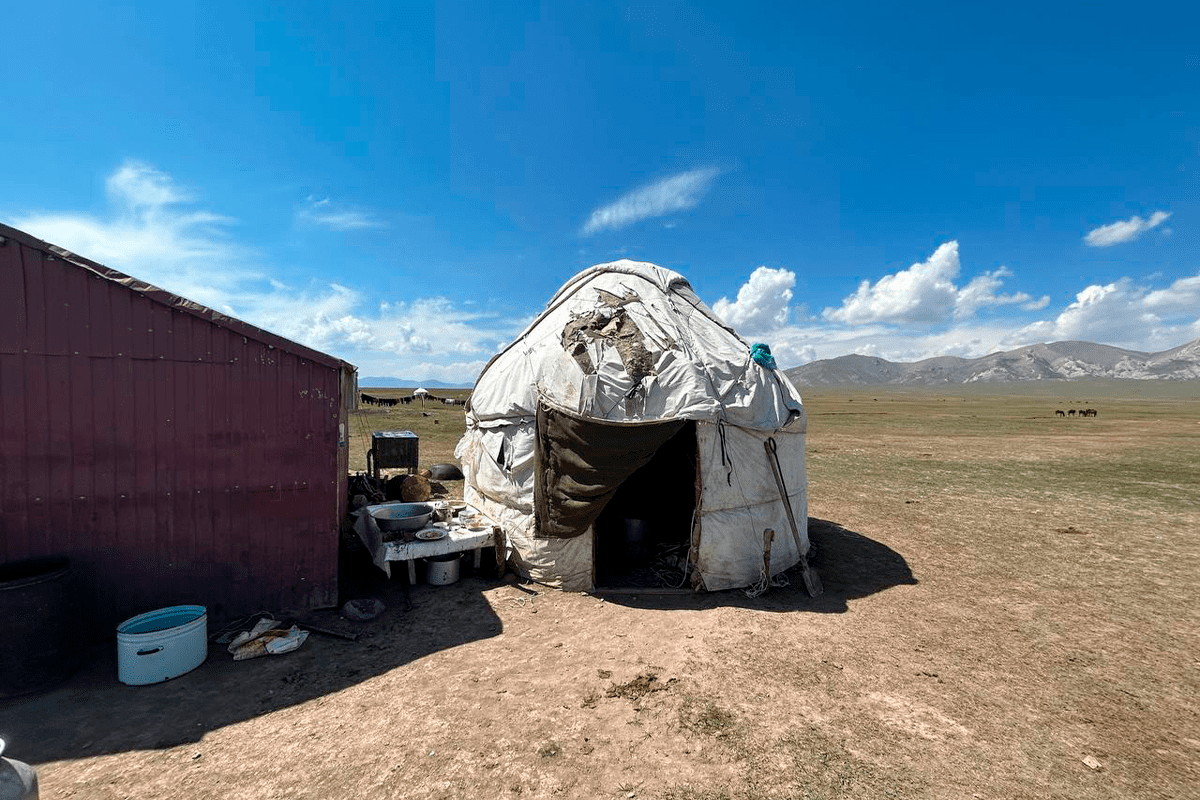Kyrgyz funerals. Funeral traditions of Kyrgyzstan not only denote grief and pain of irreparable loss, but also testify to deep respect for the memory of the deceased. Funerals are also one of the shades of the multifaceted culture of Kyrgyzstan.
Kabar aitu (death notice).
In the old days, when the Kyrgyz led a nomadic lifestyle, in the event of a person’s death at a young age, a red flag was hung from the upper opening of the yurt, in middle age – black, in old age – white. Thus, everyone knew about the tragedy and could come to say goodbye and express their condolences.
Today, in the conditions of urbanization and high technology, the need for notification through flags has disappeared.
Kara kiyu clothes (mourning in the guise of a widow).
When the head of the family dies, the wife braids the hair of another woman and puts on black clothes. According to Kyrgyz funeral customs, widows were obliged not to braid their hair for 40 days. Not wearing clothes also meant a deep respect for the feelings of the parents and relatives of the deceased husband. Today, the custom of not braiding hair is not observed.
Interesting fact:
The Kyrgyz, like many Turkic peoples, had the opinion that wearing hair at the top is a sign of belonging to the world of the living. Therefore, the hair at the top was worn both as a symbol of being in the underworld during mourning, and as a sign of respect for the deceased.
When a woman died, an elechek (a traditional female headdress in the form of a turban worn by the deceased) was put on her head.
Note that if a man becomes a widower, he can marry again only after six months.
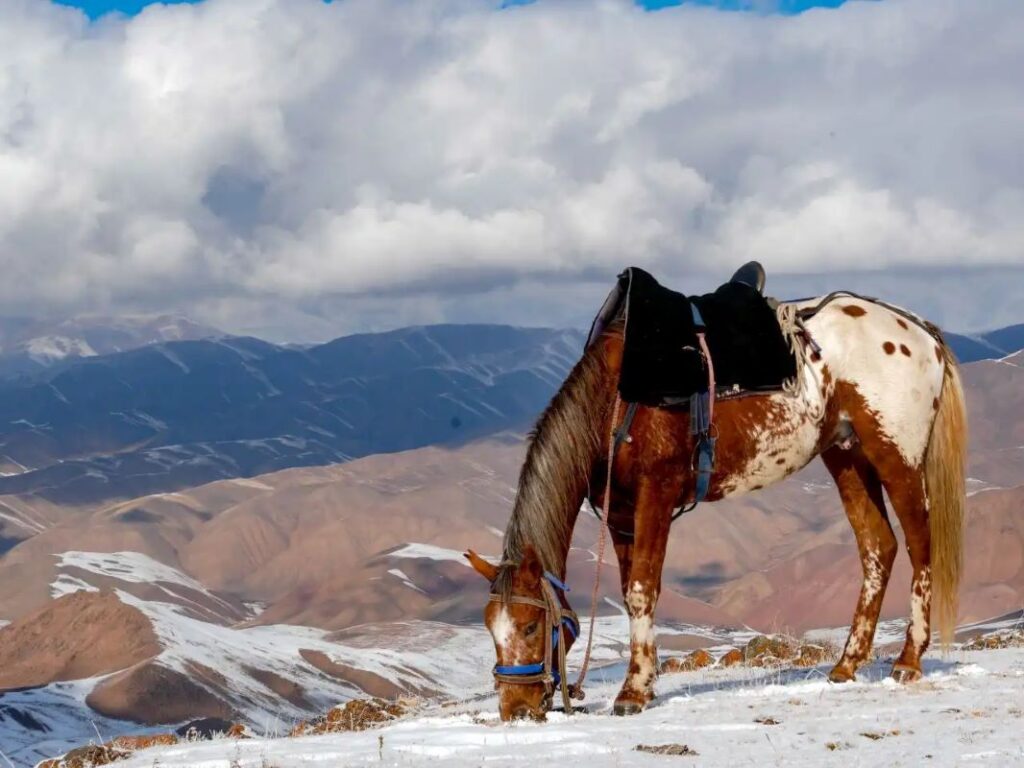
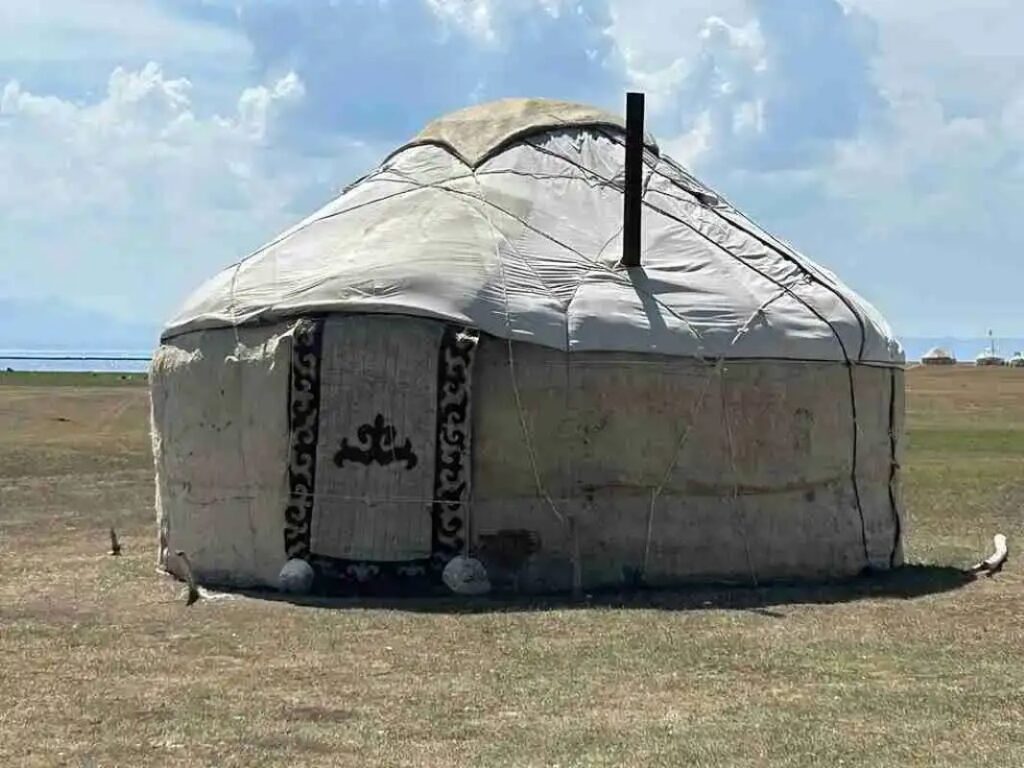
Soyok zhu (washing of the body).
As soon as a person dies, a funeral director is appointed.
The deceased is transferred to another yurt and begins to cry. Women cry inside, pressed against the wall, and men cry outside. The Kyrgyz funeral tradition involves wearing a headdress – a kalpak, a skullcap or a scarf.
In more distant times, when the Kyrgyz led a nomadic lifestyle and communities were separated from each other, the body of the deceased was buried on the third day to wait for the arrival of all relatives.
On the day of the funeral, the body is washed with water in a ceremony called “soyok zhu” and wrapped in a veil called “kepin”. At the moment when the mullah reads the prayer “zhanaza” for the deceased, the closest relative (father, son, brother or uncle) stands next to him. This indirectly means that the family pays back the debts of the deceased and forgives all debtors.
The Kyrgyz funeral tradition is a symbiosis of Islamic and pre-Islamic beliefs, recognizing not only the belief in one God, but also the worship of Mother Nature, deep respect for the memory of ancestors, whose souls always come to the aid of their descendants. In this regard, in some regions, funerals are not held on the third day. For example, in the south of the country, where Islam has a greater influence, the deceased is buried on the day of death.

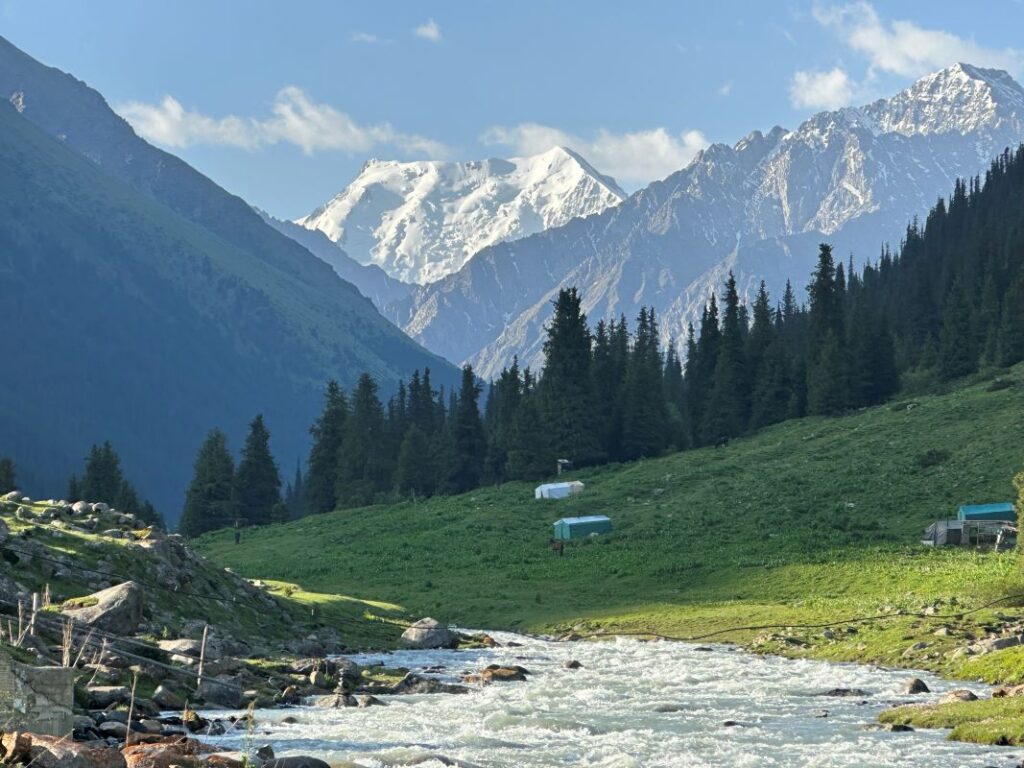
Sooktu uzatuu (farewell) and sooktu koyu (burial).
The body is placed on a special stretcher, and sooktu uzatuu (farewell) begins. Women enter the yurt and cry loudly, reading poetic memories of the deceased “koshogo”.
At this time, the men go to the cemetery. According to the Kyrgyz funeral tradition, women have no right to participate in the burial.
Memorial.
Upon returning from the cemetery, the wake begins, during which men and women eat separately.
Commemorations in Kyrgyzstan are distinguished by a variety of dishes and attract a large number of guests. Since ancient times, there has been a belief that the richer the taste of food, the happier and happier the soul of the deceased will be.
According to Kyrgyz funeral customs, all the offered treats must be eaten to the end.
Kyrgyz commemorate the deceased on the 3rd day of “uchlugu”, on the 7th day of “zhetiligi”, on the 40th day of “kyrky” and on the anniversary of the death of “ash”. After that, mourning begins.
Kyrgyz funeral traditions include several mandatory prohibitions.
Prohibition 1: It is forbidden to point at the grave during the funeral.
Prohibition 2: It is forbidden to laugh and run near the grave. Passing near the grave, one should read prayers.
Prohibition 3: It is forbidden to enter barefoot or in shoes showing feet into the house where a person died.
Prohibition 4: When a person returns from the cemetery, children should not run out to greet him.
Prohibition 5: It is forbidden to name a child after a deceased relative.
Interesting facts.
At funerals, it is customary to distribute to all family members the clothes of the deceased “muche” or textiles “zhyrtysh”.
Despite the fact that most Kyrgyz people profess Islam, the tombstones almost always depict a portrait of the deceased.
The Kyrgyz ethnic tradition is the principle of always realizing that a person is not alone in this world, and passing on the good deeds of their ancestors with great respect.


